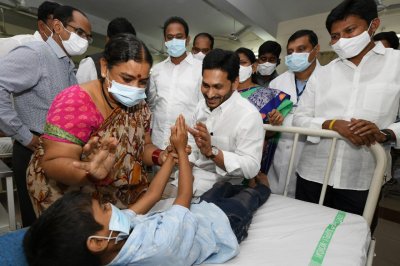Topic: Narasimha Rao
Pamulaparthi Venkata Narasimha Rao (Telugu: పాములపర్తి వెంకట నరసింహారావు) (28 June 1921 – 23 December 2004), who was commonly known as P. V. Narasimha Rao, served as the 12th Prime Minister of the Republic of India. He led one of the most important administrations in India's modern history, overseeing a major economic transformation and several incidents affecting national security. Rao accelerated the dismantling of the license raj. Rao, also called the "Father of Indian Economic Reforms," is best remembered for launching India's free market reforms that rescued the almost bankrupt nation from economic collapse. He was also commonly referred to as the Chanakya of modern India for his ability to steer tough economic and political legislation through the parliament at a time when he headed a minority government.
Rao's term as Prime Minister was an eventful one in India's history. Besides marking a paradigm shift from the socialist economy propagated by Nehru to a market driven one, his years as Prime Minister also saw the emergence of the Bharatiya Janata Party, a major right-wing party, as an alternative to the Indian National Congress which had been governing India for most of its post-independence history. Rao's term also saw the destruction of the Babri Mosque in Ayodhya which triggered one of the worst Hindu-Muslim riots in the country since its independence.
Rao's later life was marked by political isolation due to his association with corruption charges. Rao was acquitted on all charges prior to his death in 2004 of a heart attack in New Delhi. He was cremated in Hyderabad.
It uses material from the Wikipedia article "Narasimha Rao."





